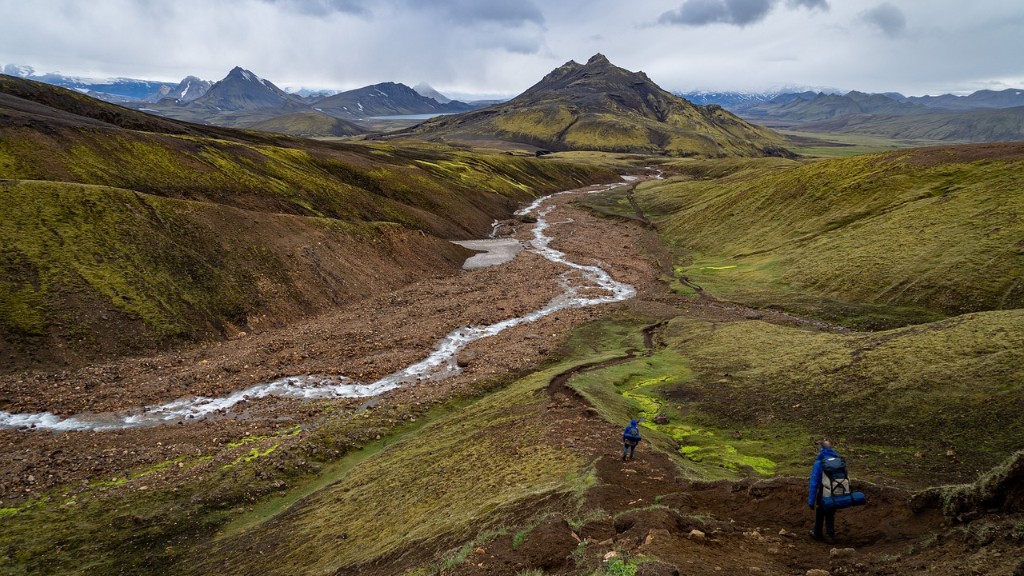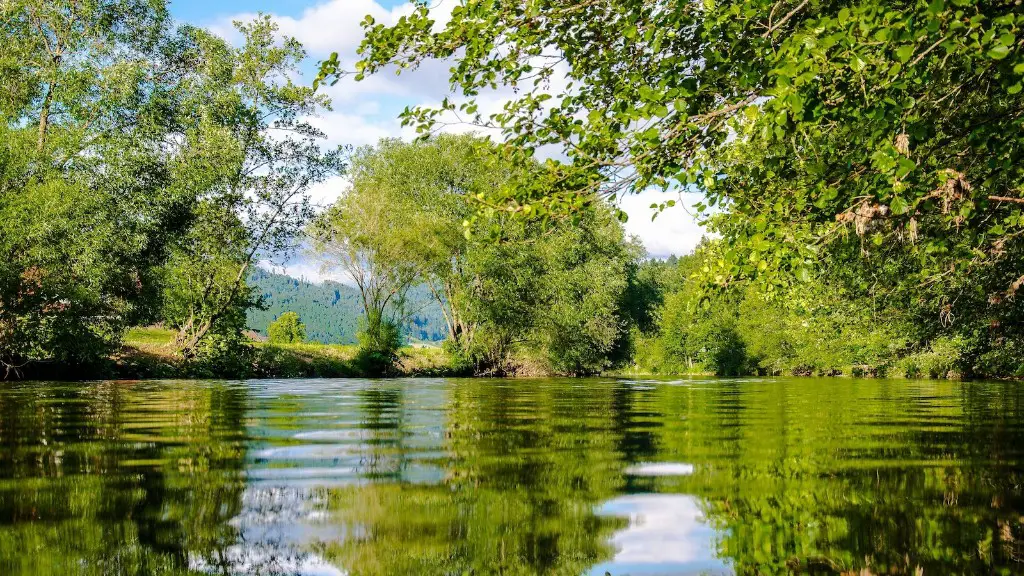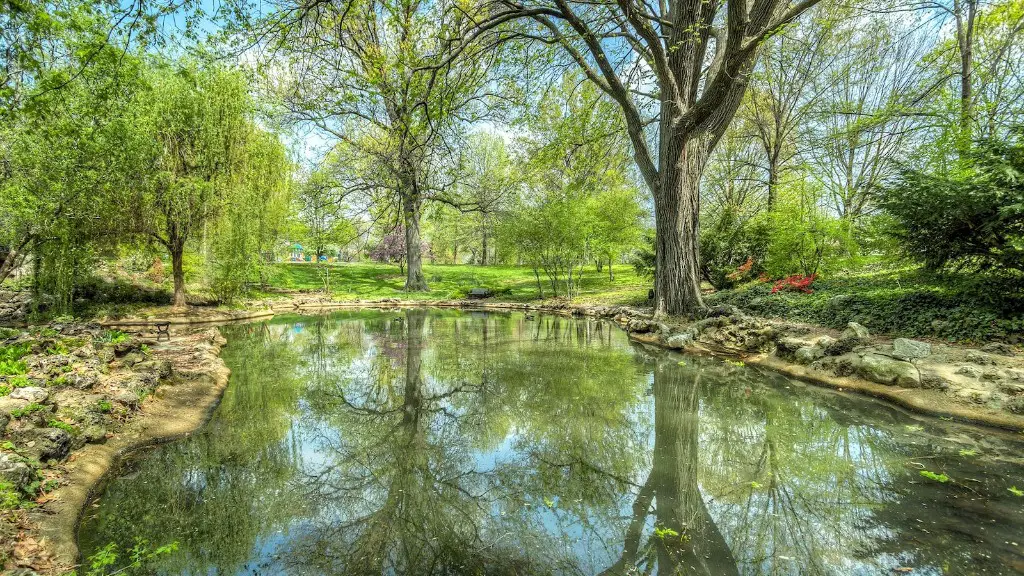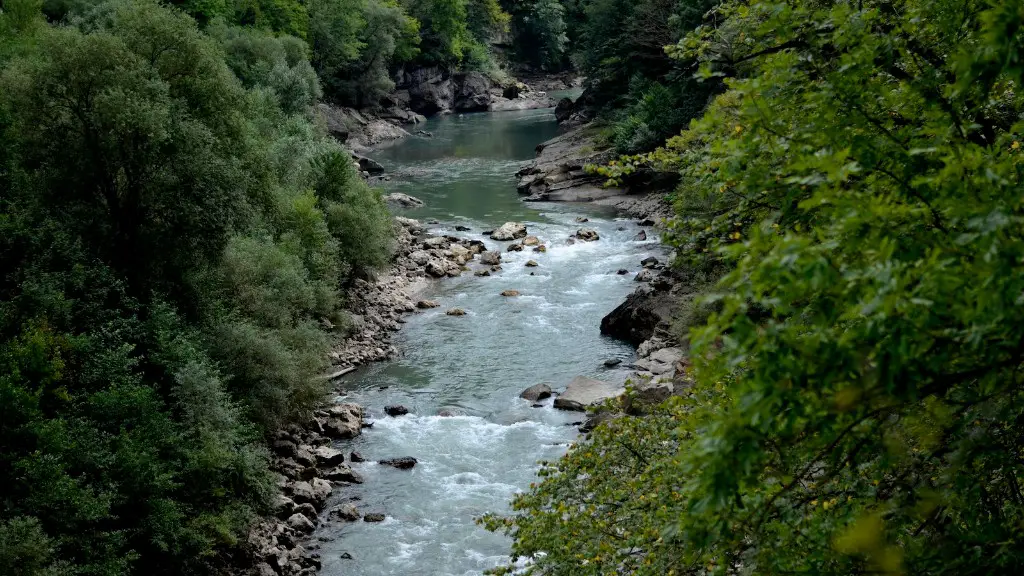The Nile is among the world’s oldest and most famous rivers. It is considered the lifeblood of Egypt, and has been the source of sustenance and the main transport artery for the region for centuries. To put it simply, the Nile is not just an important river – it is a major lifeline for millions of people.
It is no exaggeration to say that the Nile has shaped Egypt’s entire history. From its source in the mountains of East Africa, the Nile River flows in one of the world’s longest rivers, snaking down through Egypt before emptying into the Mediterranean Sea. In its 4,132-mile (6,650-kilometer) journey, the river has provided Egypt with a steady supply of fresh water for agriculture, transportation and the long-term survival of its civilization.
The Egyptians were aware of the importance of the Nile and built a complex network of dams and canals to regulate the flow and ensure it stayed in balance. Even today, the river is managed and monitored closely to ensure its vital role to the country’s economy. For instance, the Aswan Dam, completed in 1970, was designed to ensure water remains available during the African summer when the seasonal rains have stopped and the flow rate of the river drops significantly.
The importance of the Nile has been acknowledged by experts who are advocating for the increased cooperation between Egypt, Ethiopia, and Sudan when it comes to the management of its waters. This cooperation could go some way to improving the water security of all three countries, allowing them to make better use of the river and its resources.
The Nile is also significant for its cultural and religious heritage. It has held spiritual significance for millions over the years, with its waters playing a key role in Ancient Egyptian creation myths and rituals. Long after the religious practices of the Ancient Egyptians have been forgotten, the power of the Nile flows on until this day.
The role of the Nile river is constantly changing and developing. For instance, in recent years there has been a push to develop the river as a major source of renewable energy. The Egyptian government is planning to increase the usage of solar and wind energy and is looking to build more hydroelectric power plants that can benefit from the Nile’s year-round flow of water.
As the human population continues to grow, and the world faces the ever growing challenge of climate change, the importance of the Nile to millions of people has become increasingly clear. It is estimated that the Nile currently provides water to more than 40 million people living in the region, and that number is expected to rise. For this reason, it is essential that we understand the importance of the Nile, and the need to preserve and protect it.
The Rising Issues of Nile River Pollution
One of the major problems facing the Nile river is the growing levels of pollution. The river provides a vital source of water to countless people in the region, but its waters are increasingly polluted with a range of hazardous substances. These substances are released from a variety of sources, including industrial effluents, fertilizers, and sewage.
The pollution of the Nile not only has a negative effect on the environment, it can also impact on public health. As the river is used for drinking water, the polluted water can cause a range of health problems, including diarrheal diseases. To curb this problem, the Egyptian government has implemented a number of initiatives, including enforcing strict regulations on industries, and carrying out public awareness campaigns.
However, the pollution of the Nile is a complex issue, and one that cannot be fixed overnight. It is an issue that needs to be addressed by all stakeholders, including local, national, and international authorities. Through joint efforts, it is possible to reduce the levels of pollution and improve the quality of the Nile.
The Role of Nile Basin Countries
The Nile river plays an important role in the economies of the countries it passes through. In 2012, a new Nile Basin Initiative was signed between the ten countries of the region. Under the agreement, the countries vowed to cooperate on the management and equitable utilization of the shared waters of the Nile.
This agreement has been hailed as a landmark that could pave the way to greater collaboration in the region, and it provides an example of how countries can work together for the benefit of the whole region. It also highlights how important the Nile is to the region and its inhabitants, and why it is vital that its resources are managed responsibly.
The Nile Basin countries have an important role to play if the river’s resources are to be used in a sustainable way. This includes developing projects that make use of renewable energy sources, such as solar and hydroelectricity, as well as conserving water where possible.
The regions around the Nile must also strive to protect the river from the development of industries and factories that could pollute the water, as well as the unplanned urbanization of its banks. This can be achieved through strict regulations on industrial activity and the use of sustainable materials in construction.
Innovative Solutions for the Nile
Innovation can play an important role in the preservation of the Nile. By using cutting edge technology, it is possible to find new ways of protecting and preserving the river, as well as developing projects that can make the most of its natural resources.
For example, new technologies such as satellite imagery and remote sensing can be used to monitor the water levels of the Nile. This can help to detect potential floods before they strike, allowing the government to take preventive measures to minimize the impact of any flooding.
The use of innovative solutions can also help to detect and reduce pollution in the Nile. Sensors and devices, such as the ones developed by BioNet, can be used to measure water quality and detect potential pollution sources in the river.
Innovative solutions can also help to increase the efficiency of the uses of the Nile’s water. Improved meters and pumps can help to ensure that more of the water is used for productive purposes, such as drinking water and irrigation, rather than being wasted.
The Future of the Nile River
The future of the Nile River is intrinsically linked to the future of the region. As population growth and climate change continue to put pressure on the river’s resources, it is essential that the countries that share the Nile cooperate in the management of the river’s waters.
It is also essential that the inhabitants of the Nile Basin have access to clean and safe water. To achieve this, it is necessary to reduce pollution levels through better waste management and more efficient water use. At the same time, all stakeholders must also strive to ensure the long-term sustainability of the Nile by supporting innovative solutions and projects, such as those that use renewable sources of energy.
Ultimately, the future of the Nile depends on the efforts of all those who rely on it. By working together, and by understanding the significance of the river, it is possible to ensure the long-term health of the river, and the people of the region.
The Importance of International Cooperation for the Nile’s Preservation
In order to protect the Nile, it is essential that all the countries involved cooperate. The signing of the Nile Basin Initiative in 2012 was a major step, as it provided a framework for all the countries involved to coordinate their efforts. This includes sharing information, working together on projects and initiatives, and pooling resources.
However, cooperation is not just about ensuring the sustainable use of the river’s resources. It is also about understanding each other’s perspectives and needs, and finding ways to accommodate the different countries’ needs. This requires open dialogue, mutual understanding, and a willingness to work together.
By working together, all the countries of the Nile Basin can ensure the sustainable use of its resources, while also preserving its ecological and cultural heritage. This is essential if the Nile is to remain an important source of sustenance, and a vital lifeline for millions of people.
The Role of NGOs in Preserving the Nile
Non-governmental organizations (NGOs) play an important role in the preservation of the Nile River. Due to their independence from government and their ability to focus solely on the preservation of the river, NGOs can be powerful agents for change.
In recent years, NGOs have been instrumental in raising awareness about the importance of the Nile and the need for its preservation. This has involved carrying out campaigns to educate the public about the issue and highlighting the need for greater collaboration among the countries of the Nile Basin.
NGOs have also been working to promote best-management practices when it comes to water use. This includes working with farmers to promote efficient irrigation methods and educating communities about the need to preserve water. Such initiatives help to ensure that the Nile’s precious water is used in a sustainable manner.
The Nile River has played an important role in the history and development of the region for centuries. While it is essential that the river’s resources are used in a responsible and sustainable way, it is also important that its cultural, religious, and ecological significance is not forgotten. By working together, all the countries of the Nile Basin can ensure the river’s long-term survival.




